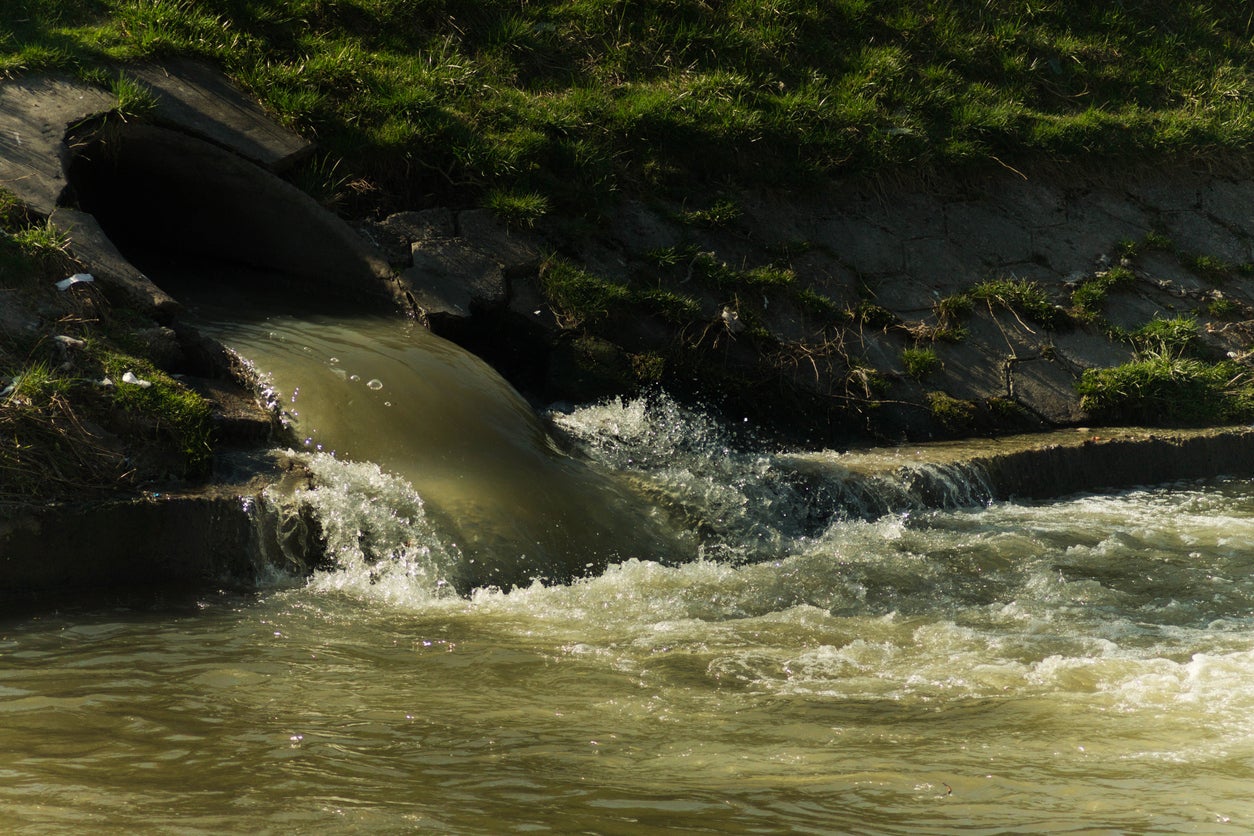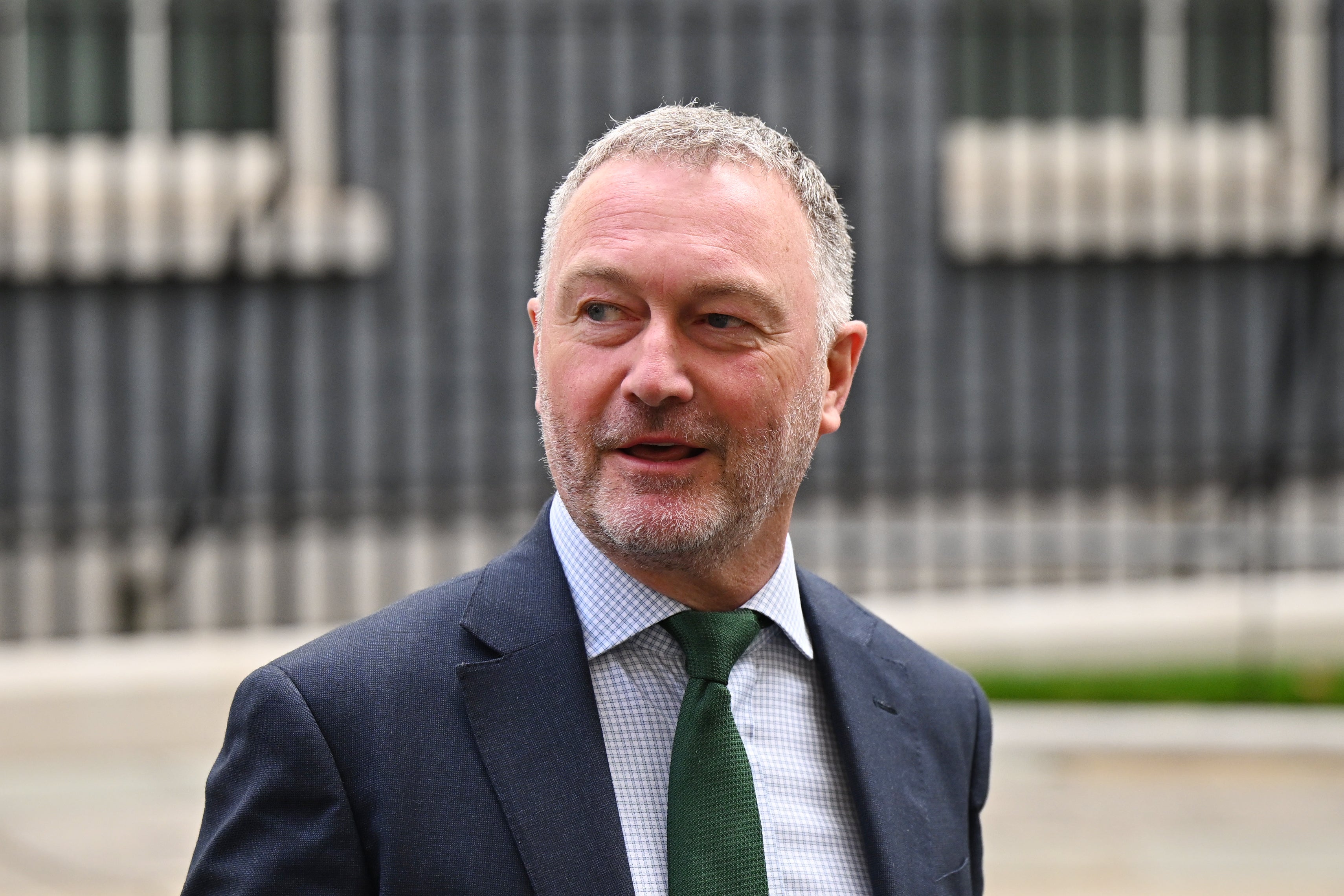Water bosses could face prison time over dumping sewage into Britain’s rivers and lakes
Environment secretary Steve Reed is to tell an invited audience of water company executives that they will lose their bonuses and face prison if they continue pumping filth into rivers and lakes

Your support helps us to tell the story
From reproductive rights to climate change to Big Tech, The Independent is on the ground when the story is developing. Whether it's investigating the financials of Elon Musk's pro-Trump PAC or producing our latest documentary, 'The A Word', which shines a light on the American women fighting for reproductive rights, we know how important it is to parse out the facts from the messaging.
At such a critical moment in US history, we need reporters on the ground. Your donation allows us to keep sending journalists to speak to both sides of the story.
The Independent is trusted by Americans across the entire political spectrum. And unlike many other quality news outlets, we choose not to lock Americans out of our reporting and analysis with paywalls. We believe quality journalism should be available to everyone, paid for by those who can afford it.
Your support makes all the difference.Water bosses are to be told today that new laws will mean they face prison if they continue to pump filth into Britain’s lakes and rivers.
Environment secretary Steve Reed will warn executives from the industry directly at a major speech in Putney, London where he will unveil details of the new Water (Special Measures) Bill to end sewage and other pollutants being pumped into the country’s waterways.
Among the new measures announced in the crackdown will be the loss of bonuses, potential prison sentences for industry executives and a duty for the water companies themselves to pay the cost of enforcement.
Mr Reed will tell them: “The public are furious that in 21st century Britain, record levels of sewage are being pumped into our rivers, lakes and seas. After years of neglect, our waterways are now in an unacceptable state.

“That is why today I am announcing immediate action to end the disgraceful behaviour of water companies and their bosses.
“Under this government, water executives will no longer line their own pockets whilst pumping out this filth. If they refuse to comply, they could end up in the dock and face prison time.
“This Bill is a major step forward in our wider reform to fix the broken water system. We will outline further legislation to fundamentally transform how the water industry is run and speed up the delivery of upgrades to our sewage infrastructure to clean up our waterways for good.”
It comes after fury over a number of high-profile incidents involving water companies pumping waste into Britain’s waterways.
It was recently revealed that Thames Water had discharged at least 72 billion litres of sewage into the River Thames since 2020 – roughly equal to 29,000 Olympic swimming pools.
It was also recently reported that millions of litres of raw sewage were illegally pumped into Lake Windermere, one of England's most famous lakes.
South West Water (SWW) was fined more than £2.1m for a series of environmental offences across Devon and Cornwall spanning a period of four years.

Mr Reed will unveil major new legislation to crack down on water bosses polluting Britain’s rivers, lakes and seas – the most significant increase in enforcement powers in a decade.
The Water (Special Measures) Bill has been introduced to parliament and will give regulators new powers to take tougher and faster action on water companies damaging the environment and failing their customers.
The Bill delivers on Labour’s manifesto pledge to clean up the water sector, including increasing the ability of the Environment Agency to bring forward criminal charges against law-breaking water executives. It will create new tougher penalties, including imprisonment, for water executives when companies fail to cooperate or obstruct investigations.
The new legislation will also ban the payment of bonuses to water bosses if they fail to meet high standards to protect the environment, their consumers and their company’s finances.
Other measures in the Bill include severe and automatic fines for a range of offences, including allowing regulators to issue penalties more quickly, without having to direct resources to lengthy investigations. It will also introduce independent monitoring of every sewage outlet, with water companies required to publish real-time data for all emergency overflows. Discharges will have to be reported within an hour of the initial spill.
Since privatisation, only three individuals have been criminally prosecuted by the Environment Agency without appeal despite widespread illegality.
The Bill creates new tougher penalties including imprisonment for water executives when companies fail to co-operate or obstruct Environment Agency and Drinking Water Inspectorate investigations. Previously, the maximum punishment for most cases of obstruction was merely a fine.
Despite overseeing catastrophic failure, water chief executives have paid themselves over £41m in bonuses, benefits and incentives since 2020.
This Bill will give the watchdog Ofwat powers to ban the payment of performance-related pay including bonuses to chief executives and senior leadership of water companies unless they meet high standards when it comes to protecting the environment, their consumers, financial resilience and criminal liability.
It will also require Ofwat to set rules requiring water companies to appoint directors and chief executives and allow them to remain in post only when they meet the highest standards of ‘fitness and propriety’, and to ensure customers are involved in company decision-making.
The Bill also closes the gap in the Environment Agency’s enforcement powers by lowering the standard of proof to the civil standard – on the balance of probabilities – and enabling fixed monetary penalties to be imposed – allowing regulators to issue penalties more quickly, without having to direct resources to lengthy investigations.
Emergency sewage overflows are not currently fully monitored. To make it easier and quicker for regulators to investigate and punish wrongdoing, water companies will be required to publish real-time data (within an hour) for all emergency overflows in England in a clear, accessible format.
Alan Lovell, chair of the Environment Agency, said: “The Bill will give us, as regulator, more power to protect our precious water quality and resources, hold water companies to account and ensure the polluter pays. The stronger penalties introduced by the Bill will deter illegal behaviour and allow us to close the justice gap and strengthen our ability to deliver swift enforcement action.”
David Black, chief executive of Ofwat, said: "This Bill strengthens our powers and will help us drive transformative change in the water industry so that it delivers better outcomes for customers and the environment."
Join our commenting forum
Join thought-provoking conversations, follow other Independent readers and see their replies
Comments